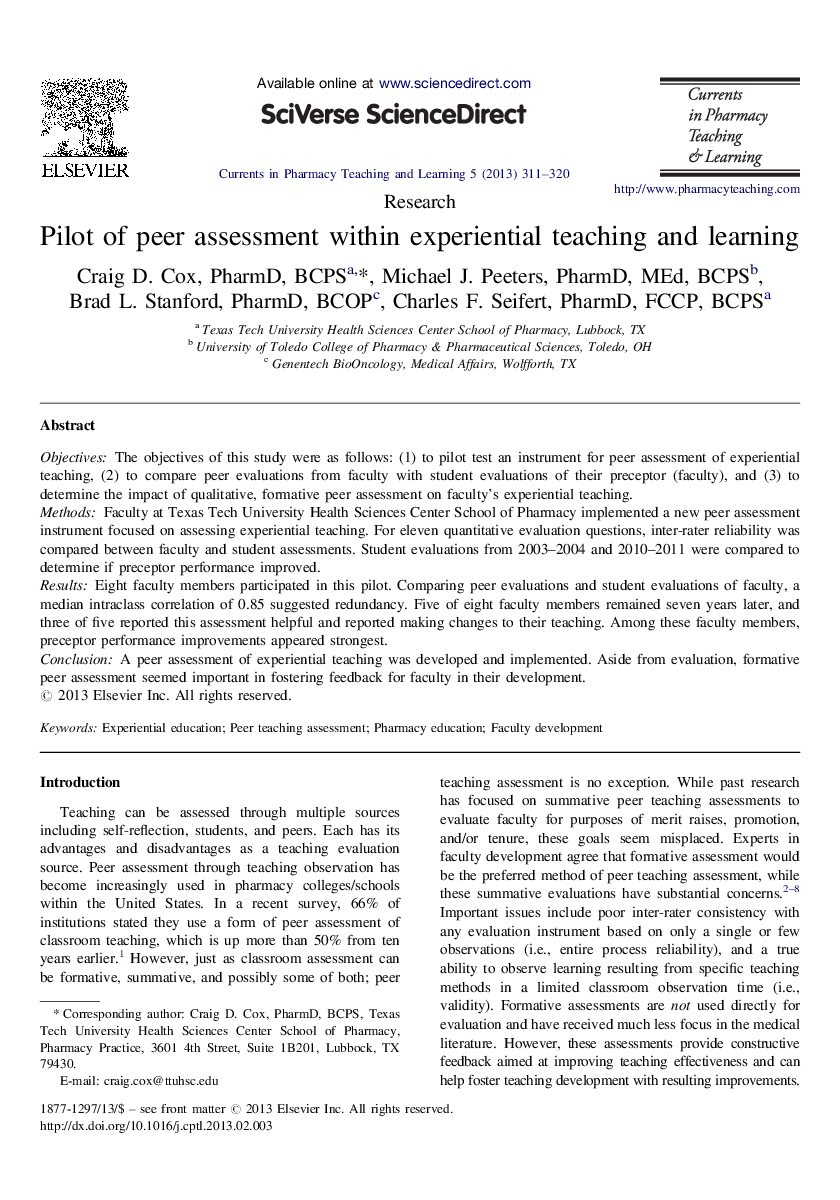| Article ID | Journal | Published Year | Pages | File Type |
|---|---|---|---|---|
| 353009 | Currents in Pharmacy Teaching and Learning | 2013 | 10 Pages |
ObjectivesThe objectives of this study were as follows: (1) to pilot test an instrument for peer assessment of experiential teaching, (2) to compare peer evaluations from faculty with student evaluations of their preceptor (faculty), and (3) to determine the impact of qualitative, formative peer assessment on faculty’s experiential teaching.MethodsFaculty at Texas Tech University Health Sciences Center School of Pharmacy implemented a new peer assessment instrument focused on assessing experiential teaching. For eleven quantitative evaluation questions, inter-rater reliability was compared between faculty and student assessments. Student evaluations from 2003–2004 and 2010–2011 were compared to determine if preceptor performance improved.ResultsEight faculty members participated in this pilot. Comparing peer evaluations and student evaluations of faculty, a median intraclass correlation of 0.85 suggested redundancy. Five of eight faculty members remained seven years later, and three of five reported this assessment helpful and reported making changes to their teaching. Among these faculty members, preceptor performance improvements appeared strongest.ConclusionA peer assessment of experiential teaching was developed and implemented. Aside from evaluation, formative peer assessment seemed important in fostering feedback for faculty in their development.
